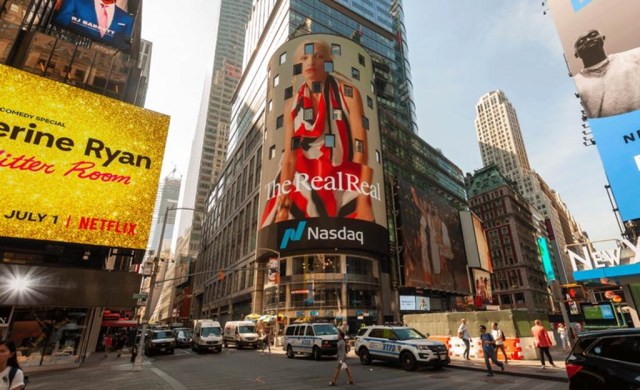
It is well known that the true cost of buying new clothing is not just what comes out of your wallet, but in how it affects our environment.
It is estimated that the fashion industry is responsible for 20 percent of global wastewater, that is second in the nation only to agriculture. According to the Ellen MacArthur Foundation, whose mission it is to restore a circular economy, the fashion industry uses 93 billion cubic meters of water each year—enough to meet the consumption needs of five million people!
Organizations such as the Ellen MacArthur Foundation and Love Water work tirelessly to inform the public about sustainable practices to improve global health and actively assist impoverished communities across the nation who lack the basic essential of clean water.

The terms fashion and sustainability haven’t always gone hand-in-hand. Thanks to climate change activists across the globe, being sustainable and creating less waste is now on trend and retailers are responding. In fact, even the nation’s biggest traditional retailers are taking a stab at going secondhand.
While there are many well-known global retail companies that are improving their environmental practices, there is a new surge of secondhand retailers emerging, and at the top of this list is San Francisco based luxury consigner, the RealReal.
The RealReal is a luxury consignment shop that is bringing the term circular fashion into the mainstream.
Since its inception, the RealReal has been devoted to improving the customer experience in what it means to buy and sell authenticated, luxury consigned goods while focusing on community and environmental sustainability.
Founder and CEO, Julie Wainwright started the company from her kitchen table in 2011, in 2019 it went public, raising $300 million in IPO, and just last month the RealReal opened its first brick-and-mortar in San Francisco’s shopping mecca, Union Square.
What is circular fashion? The term, coined by Dr. Anna Brismar, indicates that a garment (clothing, shoes, or accessories) is produced sustainably, ethically, and with materials that can uphold the item’s longevity. Once an item has been used beyond its ability, it can then be repaired or repurposed to not end up in a landfill.
In an interview with Harpers Bazaar, sustainability pioneer and fashion designer Stella McCartney said, “Right now, the equivalent of one dump truck of textiles gets landfilled or burned every second, and by 2025 the clothing waste accumulated between now and then will weigh as much as today’s world population. We can’t ignore it.”
In 2017, McCartney partnered with the RealReal to enhance its commitment to environmental sustainability. This partnership is the first in history where a luxury designer has actively promoted consignment of its goods.
In 2018, in an effort to impose industry change, they teamed up with the Ellen MacArthur Foundation, luxury retailer Burberry, and others for the monumental Make Fashion Circular campaign. This campaign encourages other retailers to engage in sustainability measures and promotes collaboration among businesses, government, and industry innovators to create a new kind of textiles economy.

It’s no surprise that many of these luxury brands are teaming up with the RealReal. Not only do they see the value in creating a sustainable circular fashion economy to boost our environmental health, but they see it as a steppingstone to creating lifetime brand loyalty.
Millennials and Gen Zers have a significant amount of spending power and retailers are making big moves to become attractive to them. Affording luxury at a discount through secondhand retailers like the RealReal is this generation’s first taste at becoming lifelong luxury consumers. Not only are they getting to experience the quality of these brands at a fraction of the cost, they are doing it in a way that promotes environmental sustainability.
We must not forget, however, the generations that have made these luxury brands into what they are today. Forgetting the Baby Boomers and Gen Xers could potentially cost the fashion industry over $14 billion over the next 20 years. And this is why the RealReal and other secondhand retailers are even more ingenious.
The RealReal offers more than luxury goods to those in their 20’s. Fashion lines are now blurred, and people of all ages can have fun with it. One of the most exciting benefits in joining the RealReal is being able to sell your once loved items and find something new, perhaps something that may even push the boundaries of your personal style.
One of the company’s most devoted clients, Nicole Curran says, “I take more risks in what I wear now. I find that I can be a little edgier and fun in the things that I wear.”
The RealReal is a retailer for those with a conscience. Whether one can afford high-end luxury straight from the retailer themselves, secondhand is the ultimate source for reducing our carbon footprint. Since its launch, the RealReal has saved 13,300 metric tons of carbon and 608 million liters of water. The future of fashion is circular and the RealReal is proud to be a leader and an innovator in this movement.

